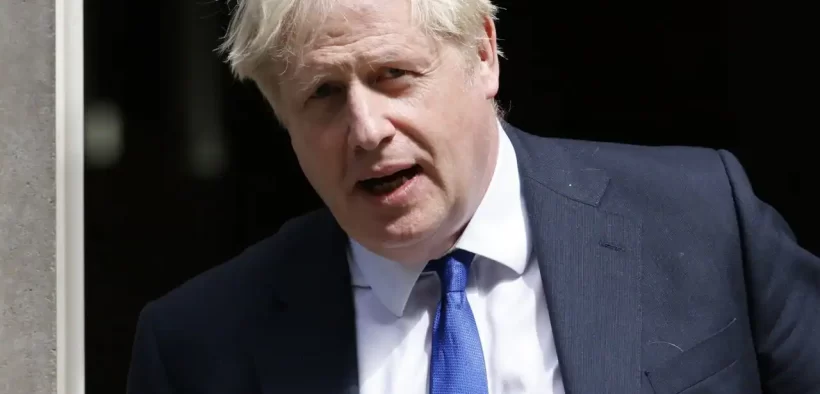Boris Johnson is clinging to power, with support seeping away from the increasingly isolated United Kingdom prime minister, badly wounded by the resignation of a stream of senior colleagues who said he was not fit to govern.
Mr Johnson’s finance and health secretaries quit on Tuesday following the latest scandal to hit the government, triggering the departure of around 15 lower-ranking politicians and the withdrawal of support of once loyal politicians
With the tide of resignations rising, some questioned whether the prime minister could fill the vacancies.
Mr Johnson sought to reassert authority by quickly appointing Nadhim Zahawi as finance minister.
But as former education secretary Mr Zahawi toured broadcast studios on Wednesday morning to set out the government’s priorities, he was confronted with news of fresh resignations.
Solicitor General Alex Chalk, the government’s second-most senior legal adviser, said the cumulative effect of a series of scandals meant the public no longer believed the government could uphold expected standards of candour.

Mr Johnson, a former journalist and London mayor who became the face of the UK’s departure from the European Union,
before taking a combative and often chaotic approach to governing.
His leadership has been mired in scandals and missteps over the last few months, with the prime minister fined by police for
and a damning report published about the behaviour of officials at his Downing Street office who breached their own lockdown rules.
There have also been policy U-turns, an ill-fated defence of a politician who broke lobbying rules, and criticism he has not done enough to tackle a cost-of-living crisis, with many Britons struggling to cope with rising fuel and food prices.
The Times of London newspaper said Mr Johnson’s “serial dishonesty” was “utterly corrosive” of effective government.
“Every day that he remains deepens the sense of chaos,” it said. “For the good of the country, he should go.”
Lost confidence
The latest scandal saw Mr Johnson apologising for appointing a politician to a role involved in party welfare and discipline, even after being briefed that the politician had been the subject of complaints about sexual misconduct.
Downing Street’s narrative changed several times over what the prime minister knew of the past behaviour of the politician, who was forced to resign, and when he knew it. His spokesman blamed a lapse in Mr Johnson’s memory.
That prompted Rishi Sunak to quit as chancellor of the exchequer — the finance minister — and Sajid Javid to resign as health secretary, while others left their junior ministerial or envoy roles.
Several of the ministers cited Mr Johnson’s lack of judgment, standards, and inability to tell the truth.
A snap YouGov poll found 69 per cent of Britons thought Mr Johnson should step down as prime minister but for the time being the remainder of his top ministerial team offered their backing.
“I fully support the prime minister,” Scottish Secretary Alister Jack said. “I am sorry to see good colleagues resign, but we have a big job of work to do.”
A month ago,
, and party rules mean he cannot face another such challenge for a year.
However, some politicians are seeking to change those rules, while he is also under investigation by a parliamentary committee over whether he lied to parliament about COVID-19 lockdown breaches.
Were Mr Johnson to go, the process to replace him could take a couple of months.
Only two-and-a-half years ago, the ebullient Mr Johnson won a huge parliamentary majority on a promise to sort out Britain’s exit from the European Union after years of bitter wrangling.
But since then, his initial handling of the pandemic was widely criticised and the government has lurched from one predicament to another.
Although Mr Johnson won wider plaudits for his support of Ukraine, a lift in his personal poll ratings did not last. His Conservatives trail the opposition Labour Party and his own popularity ratings are at all-time lows.
Mr Johnson’s combative approach towards the European Union has also weighed on the pound, exacerbating inflation which is forecast to surpass 11 per cent.












